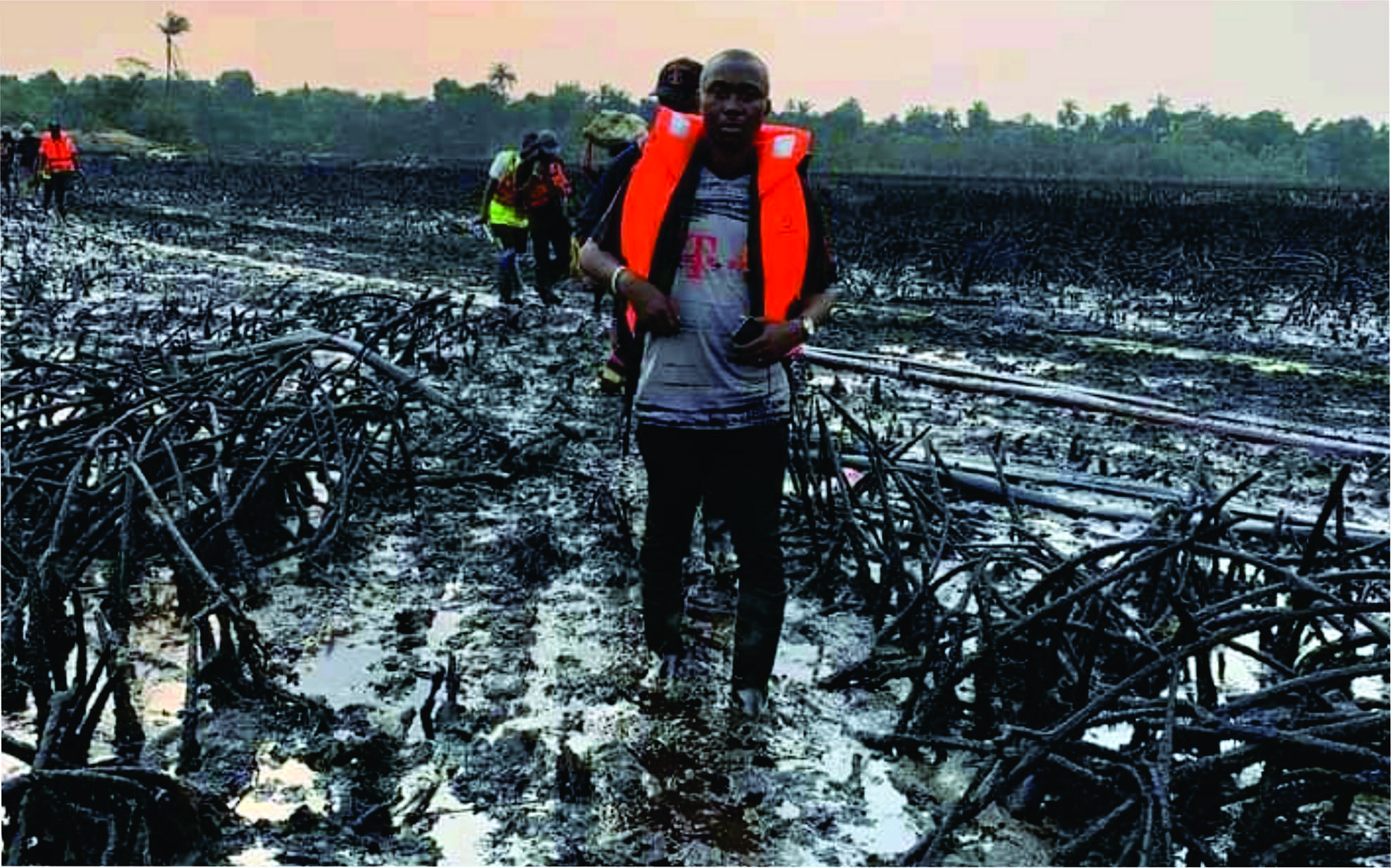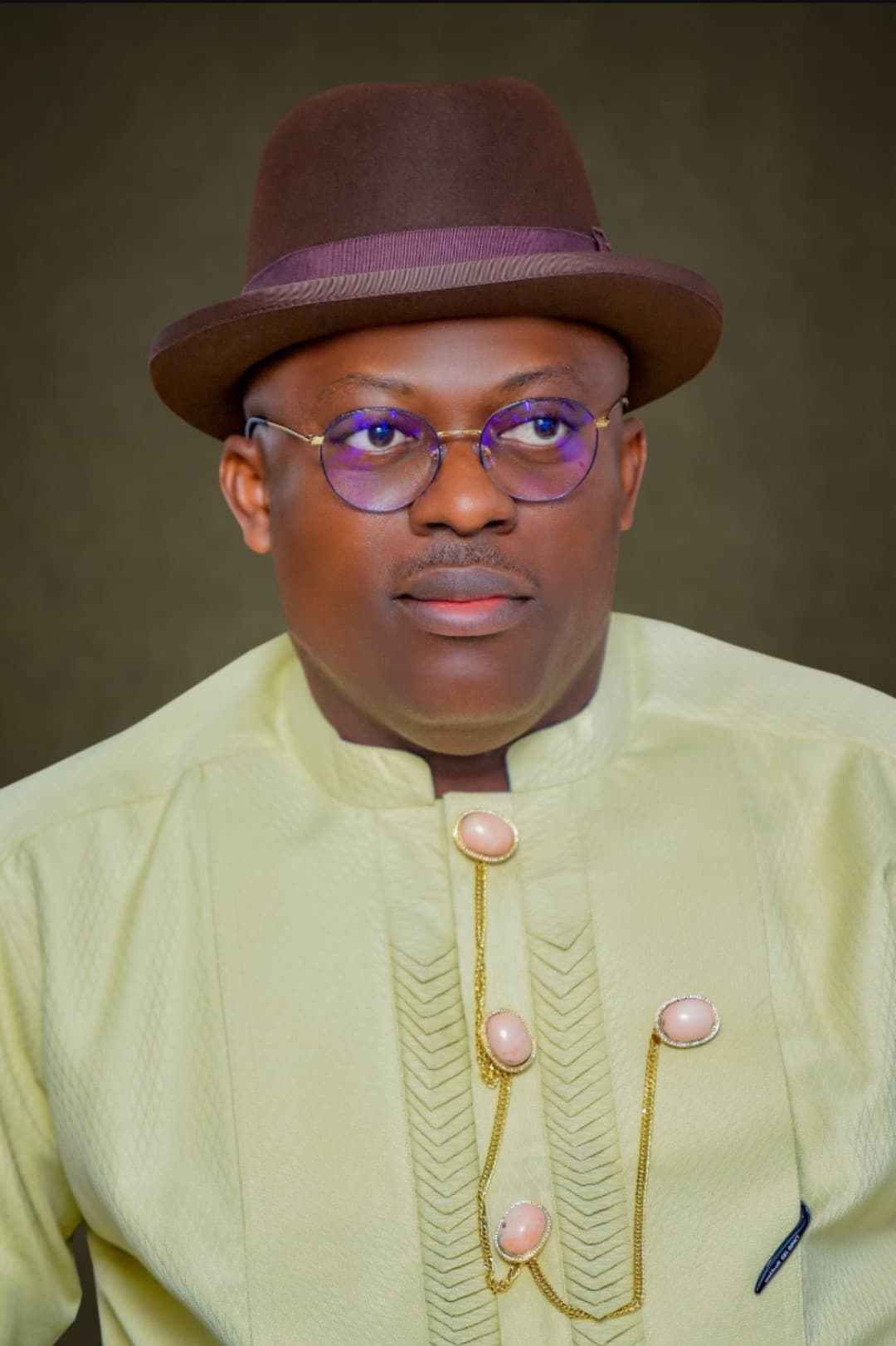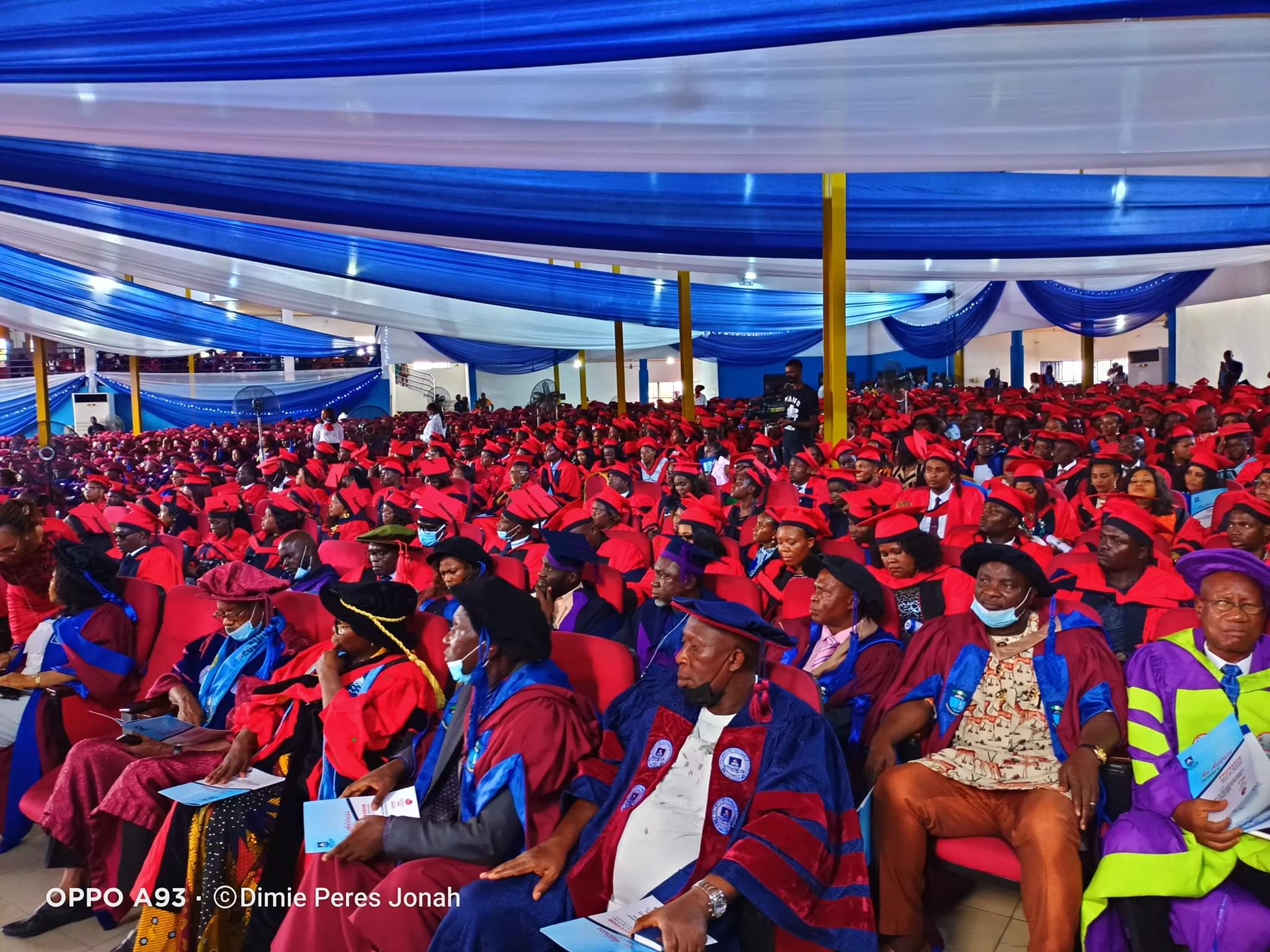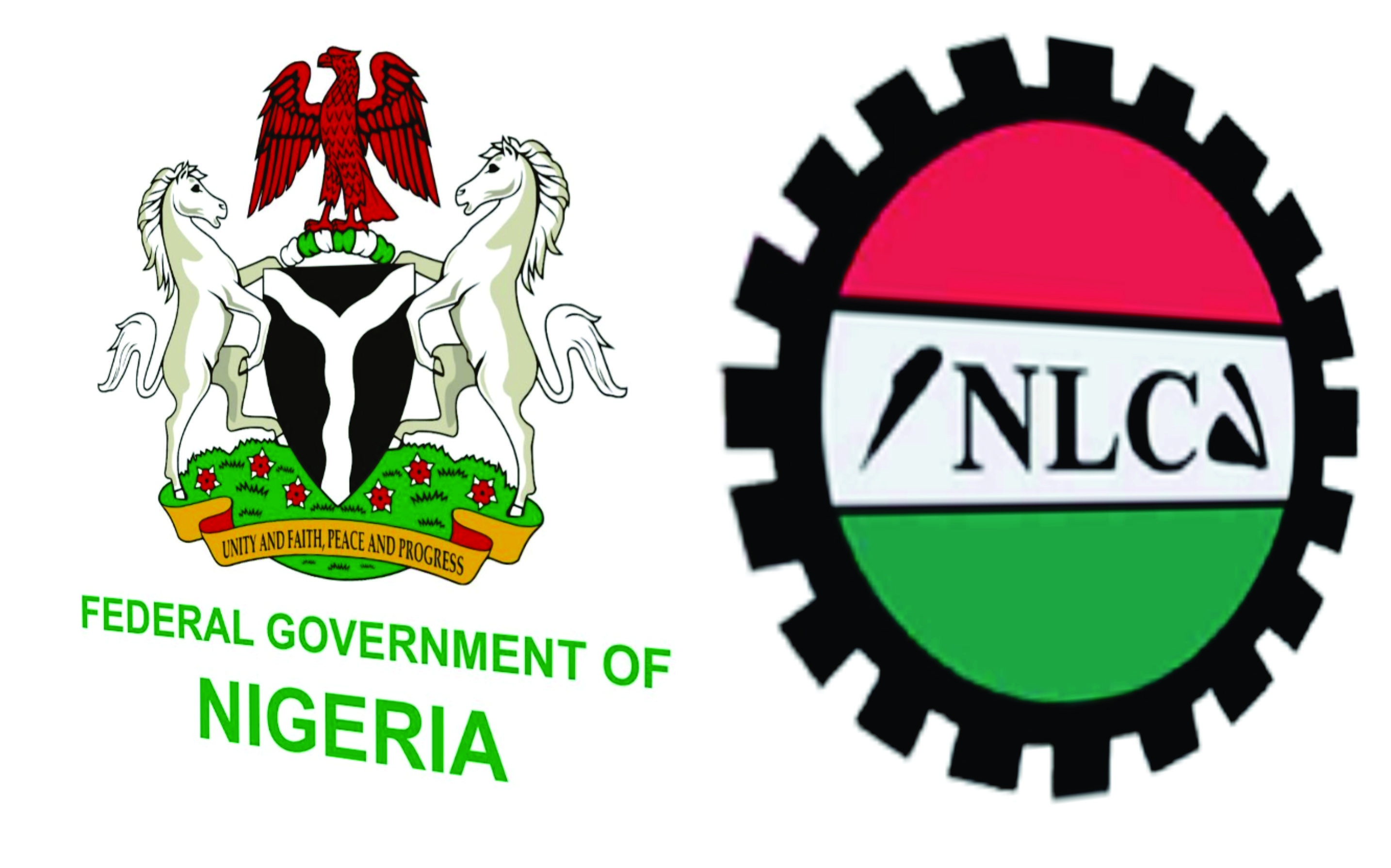Editorial
Oil Theft: That Alleged Military’s Complicity

The Rivers State Governor, Sir Siminalayi Fubara, recently expressed deep concern over the per-
sistent loss of crude oil and its resultant negative impact on the environment. He made allegation, stating that despite his administration’s strong dedication to combat illegal bunkering activities in the state, certain officers of the Nigerian Army were involved in compromising behaviours in specific areas such as Ahoada East and Ogba/Egbema/Ndoni Local Government Areas.
The governor conveyed this allegation during his meeting with the Chief of Army Staff, Lt.-Gen. Taoreed Abiodun Lagbaja, who paid a formal visit to the Government House in Port Harcourt. According to the governor, the implicated officers were affiliated with a specific company located in the Ogba/Egbema/Ndoni Local Government Area.
Fubara said, “One special problem that we have here is the issue of bunkering. In some parts of the state, in Ahoada East and Ogba/Egbema/Ndoni, most of the bunkering activities there, we believe, are subsisting because there is this cooperation between the Army and high-top oil companies. I am saying this because there is this road we are constructing in Ogba/Egbema/Ndoni, and each time the contractors approach this particular company to solicit cooperation to enable them to carry out their obligations, the military always attack the contractors.”
We commend the governor for bravely speaking out against the military’s involvement in the atrocious act, despite encountering stiff opposition to interventions. The governor’s claims have been verified and it is crucial that security agencies are compelled to disclose any member who may be collaborating with the perpetrators. The Federal Government must stay firm in its commitment, promptly fulfilling its responsibility to uncover any complicit official.
Fubara’s observation is supported by the remarks of prominent Niger Delta ex-militant leader, Asari Dokubo, who accused the Nigerian military of being responsible for a greater majority of oil theft in the country. Dokubo made this accusation following a private meeting with President Bola Tinubu in the latter’s office. He mentioned that the President had assured him of conducting an investigation into the allegations of extensive oil bunkering orchestrated by influential naval commanders who served as kingpins, and also pledged to take firm action to put an end to this ignominious practice.
The former militant leader asserted that the culpability for oil theft in the Niger Delta region lies not with the ordinary citizens, who lack the means to orchestrate such complex acts of theft. He contended that the manner in which the oil thieves have conducted their illicit activities had not only deprived the people of the Niger Delta of their means of sustenance, but also constitutes a grave crime against humanity.
To corroborate this claim, a House of Representatives committee is currently investigating the substantial oil theft in the Niger Delta after uncovering, through credible intelligence, collaboration between regulatory agencies and security agencies. The committee has said that it will examine the actions of marginal field operators who are accused of assisting in crude oil theft to compensate for production deficits. The lawmakers have already had discussions with security agencies and plan to also involve marginal field operators, as well as 14 production-sharing contract operators, and 57 joint venture operators in their investigations.
Oil theft in Nigeria is causing severe damage, with roughly 40 per cent of explored crude oil being lost due to theft and measurement inaccuracies caused by insufficient maintenance of metering facilities. The House has estimated that in 2021 alone, the country suffered a loss of $4billion, equivalent to a daily loss of 200,000 barrels. A recent statement from the National Security Adviser, Nuhu Ribadu, confirmed that a staggering 400,000 barrels are being stolen each day. Consequently, Nigeria is unable to meet its current OPEC production quota of 1.8 million barrels per day.
President Bola Tinubu should investigate Governor Fubara’s claims. The military should also conduct an internal investigation to identify any collaborators within its ranks, both current and retired. In 2022, the former Chief of Defence Staff, Lucky Irabor, expressed a commitment to investigating oil theft activities after visiting oil theft sites in Delta State with oil sector executives. His successor, Chris Musa, should ensure that this promise is upheld. The Nigerian Navy should take necessary steps to remove any officer found to be involved in these illicit activities.
The most perplexing aspect of Nigeria’s oil theft situation is the deliberate act of setting vessels ablaze, either onshore or offsho, along with the captured stolen crude oil. This is done without conducting comprehensive investigations, initiating legal proceedings, or obtaining court orders. The government should cease this peculiar and extravagant practice.
The impact of oil theft on the economy is enormous, considering that crude oil contributes to about 90 per cent of the country’s revenue. According to a study published in the European Modern Studies Journal, Nigeria has suffered substantial revenue losses due to oil theft. In 2019, the country lost $2.1billion, followed by $1.9billion in 2020, $7.2billion in 2021, and a staggering $22.4billion in 2022.
The government plays a critical role in safeguarding pipelines and other economic assets, and it is imperative that they strengthen their efforts in this regard. It is essential to identify and apprehend security operatives involved in oil theft, ensuring that they face prosecution for their actions. Any collaborators within the military’s ranks must be held accountable and brought to justice.
This is one best way to ensure that the fight against crude oil theft and illegal refining of petroleum products is eliminated, so as to save the nation the excruciating pains it faces not just because of huge revenue losses but also the damage to the environment and the consequent health complications.
Editorial
Fubara’s Infrastructure Boost For IAUE

Rivers State Governor, Siminalayi Fubara, has unveiled a bold initiative to upgrade Ignatius Ajuru
University of Education’s (IAUE) infrastructure. This strategic effort is designed to boost the university’s capacity and position it as a leading educational institution in Nigeria. The plan includes a comprehensive redevelopment aimed at improving students’ experience.
This decision came after the university’s Governing Council requested urgent state government intervention to address critical infrastructure needs. Governor Fubara expressed concern over the current state of the institution’s facilities and emphasised his administration’s commitment to enhancing both infrastructure and education quality at IAUE.
The Governor has confirmed plans to construct several key facilities, including a new administrative block, student hostels, a modern health centre, and a sports complex. This extensive move aims to enhance various aspects of university life, improving administrative efficiency, student welfare, and recreational opportunities.
The prospective administrative block will symbolise a dedication to efficiency and seamless operations. Envision a modern, well-organised space where workflows are optimised, enabling university staff to concentrate on their core mission—supporting students and promoting academic excellence. Gone are the days of cramped offices and overflowing paperwork!
Students will also benefit substantially from the construction of new hostels. Many currently struggle with inadequate accommodation which affects both their studies and overall well-being. A comfortable and secure living environment is essential, and these new facilities will provide exactly that. It is like upgrading from a crowded dormitory to a modern apartment—an immense improvement in quality of life.
Access to quality healthcare is necessary for students. The proposed health centre will offer accessible medical services in well-equipped facilities which minimises the hassle of seeking quality care elsewhere. This spunk reflects the university’s commitment to student well-being, recognising that a healthy student is a more productive one.
Similarly, a new sports complex will be a valuable investment in student health, fitness, and social engagement. Beyond promoting physical activity, it contributes to a lively campus environment where students can relax, stay active, and foster friendships. Exercise benefits both the body and the mind, enhancing overall well-being.
Governor Fubara’s recent visit to the institution was more than a mere formality; it was a crucial step in assessing the university’s infrastructure needs. His firsthand examination of the existing facilities allowed him to attain a clear comprehension of the necessary upgrades, ensuring that the planned measures are both specific and influential—much like a medical professional evaluating a patient before suggesting therapy.
These initiatives will elevate IAUE to greater heights, fostering an environment that supports learning, research, and personal development. They will attract top-tier students and faculty to enhance the university’s reputation and academic excellence. Furthermore, the efforts will contribute to a broader vision for the state’s future, as Fubara’s commitment to education represents a strategic investment in human capital.
Ignatius Ajuru University’s infrastructure has faced several challenges, including overcrowded hostels, inadequate healthcare facilities, and a shortage of modern administrative spaces. This situation has hindered both learning and administrative efficiency. The new development aims to address all concerns directly.
We appreciate the Governor’s commitment as the first among past leaders to take concrete steps toward improving IAUE. However, we urge a broader approach that extends similar developments to all higher institutions in the state. For instance, Rivers State University contends with major infrastructural inadequacies, which accentuate the need for broad-based intervention. Ensuring fair distribution of resources across all educational institutions is essential for building a strong and inclusive education system where every student has access to quality facilities.
However, quality education must take priority. While infrastructure plays a role, what truly makes a difference is innovative teaching, a relevant curriculum, well-equipped laboratories, library, skilled lecturers—these elements produce graduates prepared for our interconnected world. IAUE requires additional resources because even the most modern campus with state-of-the-art buildings holds little value if instruction remains outdated or ineffective.
It is essential for both staff and students to show heartfelt appreciation for Fubara, considering that the new facilities will greatly enrich their time spent on campus. However, the responsibility to maintain these amenities falls on the entire university community, which must ensure they use them with circumspection to avoid unnecessary destruction.
To ensure that the ambitious projects achieve their desired success, it is crucial to maintain a high level of transparency and accountability throughout the construction process. Without a doubt, the proposed infrastructure will lay down a solid framework that supports the university’s growth and development in the years to come. This will ultimately encourage continuous progress.
Editorial
UNIZIK’s Expulsion Of Precious Mbakwe

The recent expulsion of Precious Mbakwe, a 300- level female student of History and International Studies of the Nnamdi Azikiwe University (UNIZIK) by the institution’s management for assaulting a lecturer of the school is a commendable sanction. The decision sends a clear message about maintaining discipline and respect within academic institutions.
In a letter signed by the university registrar, Victor Modebelu, and addressed to Mbakwe, the university said the students disciplinary committee found her guilty of assault on a lecturer, Chukwudi Okoye, in the Department of Theatre Arts and Film Studies. The letter further noted that the student violated the Students Disciplinary Regulations particularly Regulation 4 (SDR). This formal documentation shows the university’s commitment to following proper procedures in disciplinary matters.
According to reports, trouble started when Mbakwe pounced on the lecturer, bit him multiple times, and tore his clothes for allegedly interrupting her TikTok video recording along the Faculty of Arts corridor. In response to the uproar, the university management launched a full-scale investigation into the incident. The severity of the assault warranted immediate attention from the institution’s authorities.
We unequivocally condemn the offensive against the lecturer. Acts of violence and misconduct are antithetical to the values of academic inquiry and should have no place within our educational establishments. This physical attack represents a grave breach of trust and conduct, a violation of the very foundation upon which a safe and productive learning surroundings is built.
Such mien cannot be tolerated in any educational setting, as it undermines the principles of respect, intellectual freedom, and the pursuit of knowledge that are essential to our scholarly community. We stand in solidarity with the victim and commit to fostering a campus culture where such occurrences are not only unacceptable but actively prevented.
Mbakwe’s reported action is an embarrassment to the student body and does not represent the values of the Nigerian student locale, which emphasises integrity, respect, and accountability. Such conduct besmirches the reputation of not only the individual but also the broader pedagogical community, which works diligently to uphold high standards of behaviour, professionalism, and academic excellence
We urge the university authorities to take a more decisive action by involving the police in the matter. The serious nature of this episode goes beyond what academic penalties can address. Such action would create a strong precedent, reinforcing the message that violence is intolerable and ensuring that future matters are met with appropriate legal consequences.
The academic milieu must be preserved as a space characterised by respect and learning. It serves as a foundational framework for intellectual growth and the exchange of ideas. Universities, in particular, play a critical and influential role in shaping the future leaders and professionals of society. Given this paramount responsibility, it becomes essential to maintain high standards of action and foster an atmosphere of mutual respect.
Proper channels exist for students to raise concerns and seek resolution of issues they face. Students should utilise these official processes and avoid actions that could harm their educational prospects. The established systems for addressing grievances provide constructive ways to resolve conflicts without resorting to disruptive etiquette.
Respect for lecturers lies at the heart of meaningful learned discourse. When students show genuine regard for their teachers’ expertise and experience, it creates a habitat conducive to erudition and intellectual advancement. This means actively participating in discussions, meeting deadlines, and approaching disagreements with maturity.
University rules serve as the framework that enables thousands of students and staff to coexist and work productively. These regulations, from library policies to examination procedures, are not arbitrary restrictions but carefully considered guidelines that protect erudite integrity and ensure fair treatment for all. Adhering to these guidelines enables students to foster a structured and effective educational environment while enhancing their abilities in complying with institutional regulations.
The National Association of Nigerian Students (NANS) should issue a formal statement condemning this disruptive comportment and urge all students to maintain decent conduct on campus. The union must emphasise the seriousness of treating lecturers and university administrators with due respect, while fostering an instructional environment that promotes constructive dialogue and mutual understanding between students and the authorities.
This incident should serve as a learning opportunity for all stakeholders in the Nigerian education system about the magnitude of maintaining decorum and following established protocols for conflict resolution. It reinforces the need for continuous dialogue about pertinent demeanour in intellectual settings while adapting to changing social norms.
Editorial
Solid Minerals, Cesspit Of Corruption

The recent revelations by former Labour leader and current Chair of the Senate Committee on Interior, Senator Adams Oshiomhole, have exposed a deeply troubling reality in Nigeria’s solid minerals sector. His disclosure that former military generals and foreign operators have systematically seized control of the country’s mineral deposits illuminates the extent of institutional decay and regulatory capture plaguing this vital economic sector.
Minister of Solid Minerals, Dele Alake’s confirmation of these allegations strengthens Oshiomhole’s claims. The minister’s clear identification of “powerful Nigerians” as the masterminds behind illegal mining operations, along with their alleged ties to terrorist financing networks, paints a troubling picture of the complex web of corruption that is undermining national security.
The audacious manner in which these mining syndicates operate reflects their deeply entrenched position within Nigeria’s power structure. Their apparent immunity from prosecution or oversight demonstrates how thoroughly they have infiltrated key institutions, enabling them to continue their exploitative activities without fear of consequences. This systemic failure has persisted across multiple administrations, highlighting the challenge of confronting these well-connected networks.
Former President Muhammadu Buhari’s tepid response to detailed intelligence briefings about the crisis represented a significant failure of leadership. The current administration under President Bola Tinubu appears to be following a similar pattern of inaction, raising serious questions about the political will to address the endemic corruption. This continued paralysis suggests either inability or unwillingness to challenge powerful vested interests.
The grim contrast between enforcement approaches in different regions of Nigeria reveals troubling inconsistencies in governance. While unauthorised petroleum refineries in the Niger Delta face swift and severe military action, illegal mining operations in the North continue largely unimpeded. This disparity in enforcement not only undermines the rule of law but also fuels regional tensions and perceptions of discriminatory treatment.
Selective enforcement practices by the government have created a dangerous precedent. Small-scale refiners in the South face immediate persecution, while large-scale illegal mining operations in the North proceed with apparent impunity. The uneven application of law enforcement has exacerbated security challenges and deepened existing regional divisions.
Shamefully, the deafening silence from authorities regarding widespread corruption in the mining sector strongly suggests high-level complicity. The “conspiracy of silence” has created an atmosphere of resignation among citizens, who witness the systematic looting of their national resources by a privileged few operating outside the bounds of law and accountability.
Further compounding this crisis is the psychological impact on the Nigerian populace. The visible impunity enjoyed by these mining cartels has fostered a sense of helplessness among ordinary citizens, who increasingly view government institutions as serving the interests of a corrupt elite rather than the general public.
Immediate and decisive actions are required to dismantle these criminal networks and restore integrity to the mining sector. Superficial reforms or symbolic gestures will prove insufficient; what’s required is a comprehensive strategy to investigate, prosecute, and punish all parties involved in illegal mining activities, regardless of their status or connections.
No one can imagine the security implications of allowing illegal mining to continue unchecked. The illicit funds generated from these operations provide essential financing for criminal organisations and extremist groups, creating a direct link between mineral theft and national security challenges. Addressing illegal mining therefore becomes critical for both economic and security reasons.
Reform of the extractive sector must extend beyond enforcement to include comprehensive regulatory overhaul. New frameworks must be established to ensure all mining operations adhere to strict environmental standards and contribute appropriately to national development. This includes implementing transparent permitting processes and ensuring proper revenue collection and distribution.
Transforming Nigeria’s mining sector represents a vital test of governance and national resolve. Success requires not only technical solutions but also the political courage to confront entrenched interests and implement lasting reforms. The future prosperity of Nigeria depends remarkably on whether its leaders can summon the will to protect and properly manage its vast mineral resources for the benefit of all citizens.
-
Rivers4 days ago
Group Predicts Garden City Status Return For Rivers … Lauds Fubara Over New RIWAMA Boss’ Appointment
-
Nation4 days ago
Rivers Begins Screening Of National Health Fellows
-
Business4 days ago
Firm converts 15,000 Vehicles To Run On CNG
-
Politics4 days ago
Ahead November Poll: We’re Best Option For Anambra – PDP
-

 News4 days ago
News4 days agoTinubu Appoints Ogunjimi Accountant-General
-
Rivers4 days ago
Rivers Judiciary Reacts Over Allegation of CJ Annual Vacation …Threatened Legal Action
-
Rivers4 days ago
Fubara Approves Building Admin Block, Hostels, Others For IAUE
-
Nation4 days ago
Group Honours DPO

